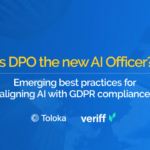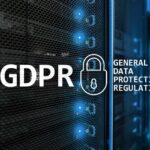Environmental, Social, and Governance (ESG) compliance has evolved into a critical factor in corporate sustainability. Investors, regulators, and customers now expect businesses to demonstrate ethical governance, transparent data handling, and environmental and corporate social responsibility in addition to traditional ESG concerns like carbon emissions and fair labor practices.
While ESG is often linked to climate action and corporate ethics, its connection to data privacy and GDPR (General Data Protection Regulation) compliance is just as significant. Companies that mishandle personal data not only risk severe GDPR fines but also damage their ESG credibility, leading to negative investor sentiment, loss of trust, and reputational damage.
For organizations seeking efficient GDPR compliance as part of their ESG strategy, GDPR Register provides an all-in-one compliance software that automates key processes, reduces manual workload, and ensures businesses stay ahead of both data privacy regulations and ESG requirements.
Why ESG and GDPR Compliance Are Connected
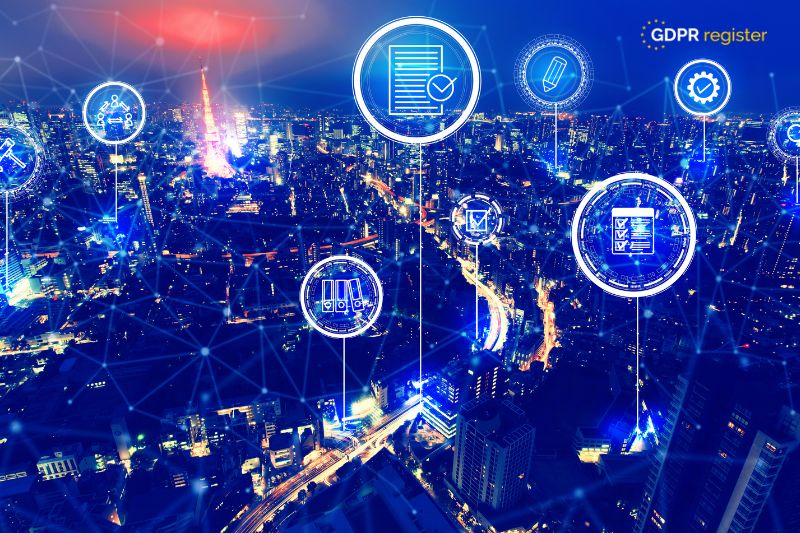
Many businesses still see ESG and GDPR compliance as separate issues, but they are deeply intertwined. GDPR is a strict legal framework enforcing ethical data governance, while ESG is a voluntary and regulatory-driven framework for sustainable corporate responsibility.
From an ESG perspective, data privacy, security, and governance are essential because:
- Personal data security is a human right – A business protecting ESG data demonstrates ethical corporate governance and commitment to fundamental rights.
- Data-driven ESG reporting relies on compliance – Many ESG frameworks require businesses to collect, process, and report data, which must be GDPR-compliant to ensure accuracy, transparency, and accountability.
- Investor confidence depends on compliance – ESG-conscious investors prioritize companies with strong governance and risk management, and GDPR compliance is a key metric for assessing governance effectiveness.
- Cybersecurity and sustainability are connected – Data centers consume vast amounts of energy, making efficient data management and data storage solutions essential for reducing carbon footprints.
Failing to integrate GDPR into an ESG strategy can result in:
- Regulatory fines – GDPR violations can cost businesses up to €20 million or 4% of global revenue.
- Loss of investor trust – ESG-conscious investors monitor companies for strong governance, and data privacy breaches signal weak corporate responsibility.
- Reputational damage – Potential data breaches can lead to negative ESG press and loss of customer confidence.
To prevent these risks, businesses must proactively align GDPR compliance with ESG goals, using technology-driven compliance tools to automate governance, reduce risks, and maintain ethical data-handling practices.
The Real-World Impact of GDPR on ESG Ratings

GDPR compliance plays an essential role in ESG ratings, with strong ESG and data protection policies boosting governance scores and making companies more attractive to investors and business partners.
A well-known enforcement case highlights this connection:
- Google was fined €50 million by the French Data Protection Authority (CNIL) for failing to provide transparent data processing policies and obtain valid user consent for ad personalization.
- The fine was upheld by France’s Highest Administrative Court (Conseil d’État), confirming the severity of GDPR violations and reinforcing the legal and reputational risks of non-compliance.
- Following the ruling, Google faced heightened regulatory scrutiny and public criticism, which can negatively impact investor sentiment and ESG scores.
This case demonstrates how poor data governance can result in financial penalties, loss of stakeholder trust, and reputational damage—all of which affect a company’s ESG standing.
The ruling reinforces the GDPR’s role in ethical data management, showing why data privacy and governance should be core priorities in ESG-aligned corporate strategies.
If you’re struggling with GDPR compliance, GDPR Register provides an intuitive compliance solution that simplifies data protection, aligns with ESG goals, and ensures full regulatory adherence. Try GDPR Register today.
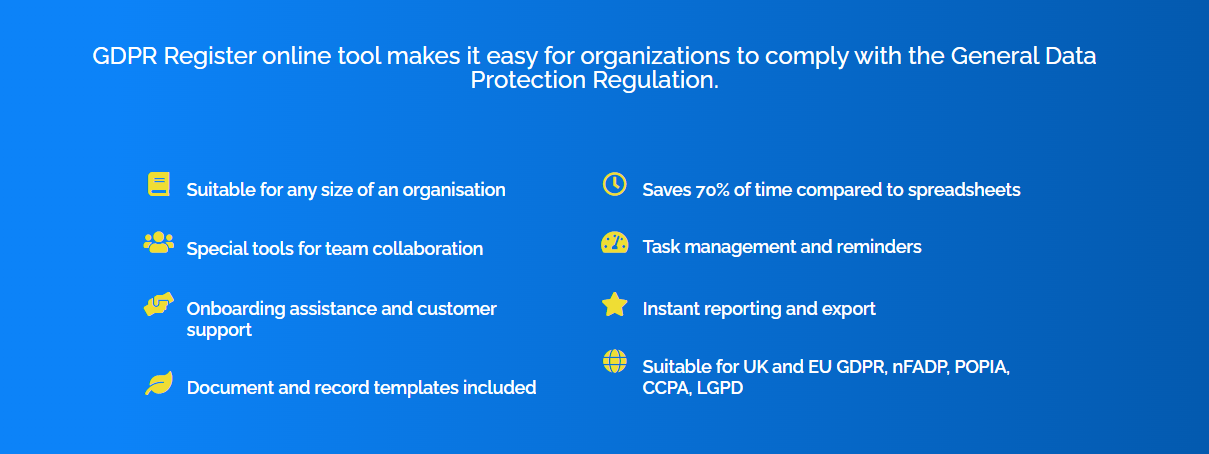
Expanding Regulatory Expectations: GDPR’s Growing Role in ESG Compliance
Since GDPR enforcement began in 2018, regulations around data privacy and security have intensified worldwide. The European Union has introduced additional laws, such as:
- The Digital Services Act (DSA) – Establishing greater corporate responsibility for online data protection.
- The Artificial Intelligence Act – Regulating AI-driven data processing and algorithmic transparency.
- The Data Governance Act – Governing cross-border data sharing and business-to-government (B2G) data access policies.
These regulations intersect with ESG frameworks, requiring businesses to not only protect personal data but also demonstrate transparency and accountability in how they manage data collection, use, and store data.
As ESG-focused investors and regulatory bodies demand greater transparency, GDPR compliance has become an essential part of corporate risk management. Businesses that fail to demonstrate ethical data handling risk:
- Legal consequences – GDPR non-compliance results in major fines, legal scrutiny, and regulatory audits.
- Investor withdrawal – ESG-conscious investors assess companies based on their governance practices, including data privacy and security.
- Reputational damage – High-profile data breaches and privacy violations lead to negative ESG press and loss of stakeholder trust.
To avoid these risks, businesses must adopt automated compliance tools to ensure seamless GDPR and ESG compliance.
Regulatory requirements are evolving and businesses mustn’t fall behind. With GDPR Register, you can automate compliance, streamline ESG reporting, and stay ahead of new privacy laws. Request a free demo here
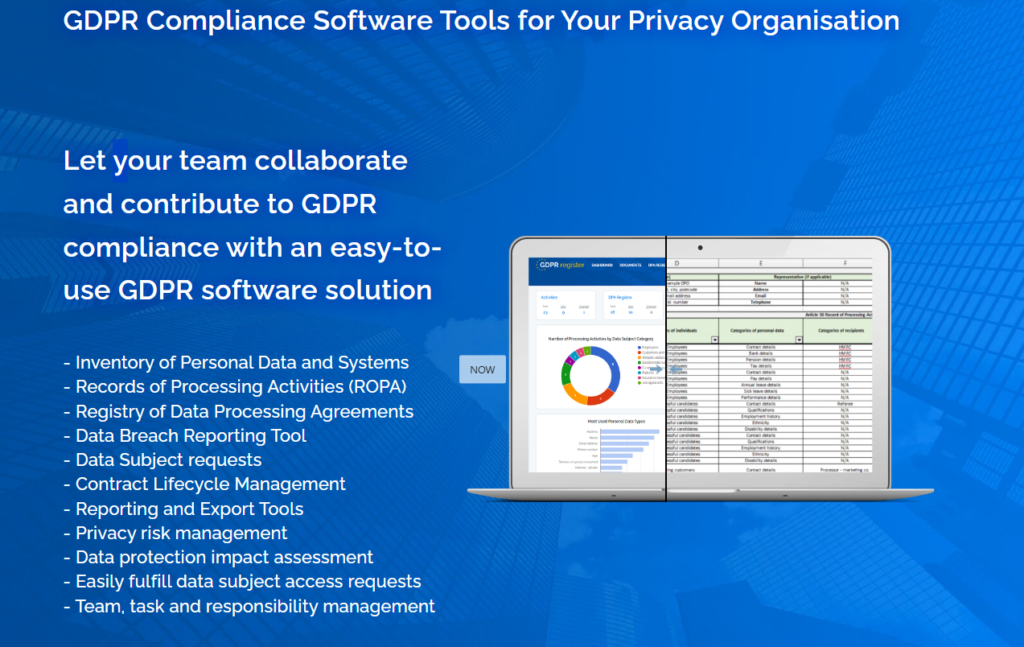
Industry-Specific GDPR-ESG Challenges
Different industries face unique challenges in aligning GDPR compliance with ESG goals:
- Financial Sector – Banks and insurance companies process sensitive customer data, requiring strict GDPR-compliant cybersecurity protocols while ensuring transparent ESG risk reporting.
- Healthcare – Hospitals and pharmaceutical companies must protect patient data while balancing GDPR compliance with medical research and ethical AI-driven healthcare.
- Retail & E-commerce – Businesses leveraging customer data for targeted marketing must comply with data minimization principles while supporting consumer privacy rights under GDPR.
- Technology & SaaS – Cloud service providers must secure user data, ensure GDPR compliance in cross-border data transfers, and reduce environmental impact through energy-efficient data centers, where data storage decreases can contribute to lower energy consumption
Each sector must strategically integrate GDPR compliance into its ESG framework to stay compliant, avoid financial penalties, and improve corporate sustainability ratings.
How GDPR Register Helps Businesses Align GDPR with ESG Goals

For businesses aiming to integrate GDPR compliance into their ESG strategy, GDPR Register provides an automated, structured, and scalable solution that simplifies compliance management.
Key features of GDPR Register’s compliance software include:
- Personal Data Inventory & Mapping – Businesses can track where personal data is stored, processed, and shared, ensuring ESG-aligned transparency.
- Records of Processing Activities (RoPAs) – Enables seamless documentation of data processing activities, making GDPR and ESG reporting effortless.
- Data Breach Tracking & Reporting – Ensures businesses comply with GDPR breach notification laws while maintaining ESG governance transparency.
- Automated Compliance Documentation – Reduces manual workloads by providing ready-to-use templates and structured compliance reporting.
- Third-Party Risk Management – Helps businesses monitor vendor compliance with both GDPR and ESG standards.
- Contract Lifecycle Management – Ensures all data-related contracts are GDPR-compliant, strengthening corporate governance policies.
- Data Protection Impact Assessments (DPIAs) – Identifies and mitigates privacy risks, improving ESG data management strategies.
- Multi-Entity Compliance Management – Enables businesses to scale compliance efforts across global subsidiaries and multiple jurisdictions.
Unlike manual spreadsheets and outdated compliance methods, GDPR Register’s automation tools streamline data protection, reduce operational risks, and ensure businesses meet both ESG and GDPR obligations efficiently.
The Future of GDPR and ESG Compliance
As ESG-driven regulatory expectations evolve, GDPR compliance will become even more critical in corporate governance.
Upcoming trends shaping GDPR and ESG compliance include:
- AI-powered compliance solutions – Businesses will adopt machine learning tools to automate data risk assessments and compliance monitoring.
- Stronger enforcement of cross-border data transfers – Companies operating in multiple jurisdictions will need integrated GDPR-ESG compliance strategies.
- ESG-driven cybersecurity initiatives – Investors will increasingly assess companies based on cybersecurity strength, making GDPR-compliant privacy and data protection a core investment factor.
Companies that proactively integrate GDPR compliance within their ESG framework will enhance their corporate reputation, attract ESG-conscious investors, and reduce regulatory risks.
Conclusion: Why GDPR Compliance Strengthens ESG Ratings
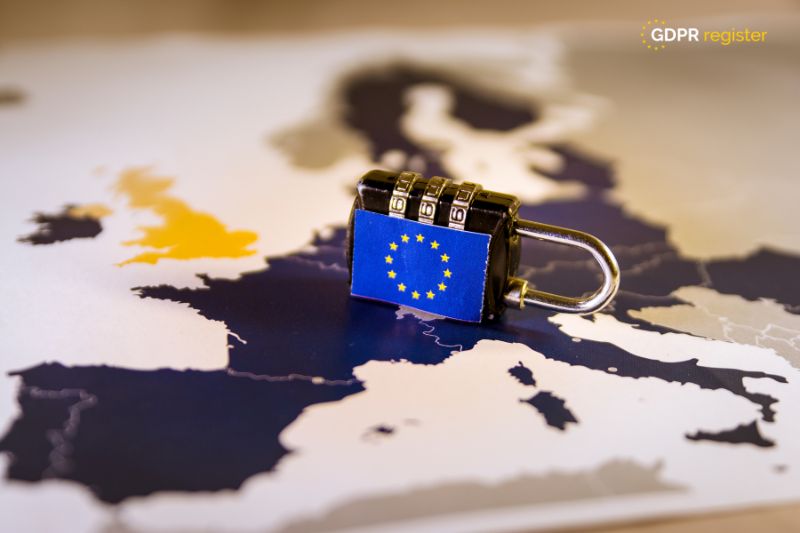
With ESG and GDPR compliance becoming inseparable, businesses must adopt automated compliance solutions to stay ahead.
Companies that fail to implement GDPR-compliant governance risk financial penalties, reputational damage, and lower ESG ratings. On the other hand, organizations that integrate GDPR compliance into ESG initiatives gain a competitive advantage, improving investor trust and long-term sustainability.
GDPR Register simplifies this process, ensuring businesses meet data privacy regulations while strengthening their ESG commitments.
If you want to ensure seamless GDPR and ESG compliance, try GDPR Register’s automated compliance software today for a safe and compliant future for your business.



